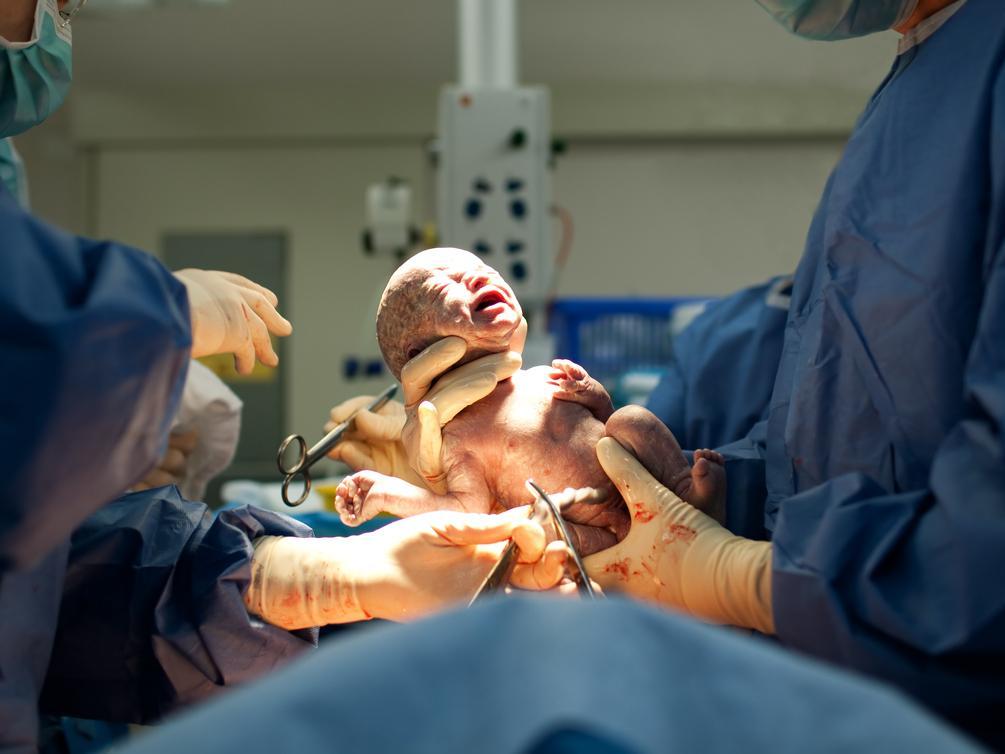Are babies born by caesarean more likely to be obese?

Your support helps us to tell the story
From reproductive rights to climate change to Big Tech, The Independent is on the ground when the story is developing. Whether it's investigating the financials of Elon Musk's pro-Trump PAC or producing our latest documentary, 'The A Word', which shines a light on the American women fighting for reproductive rights, we know how important it is to parse out the facts from the messaging.
At such a critical moment in US history, we need reporters on the ground. Your donation allows us to keep sending journalists to speak to both sides of the story.
The Independent is trusted by Americans across the entire political spectrum. And unlike many other quality news outlets, we choose not to lock Americans out of our reporting and analysis with paywalls. We believe quality journalism should be available to everyone, paid for by those who can afford it.
Your support makes all the difference.It has been reported widely that babies born by caesarean section are more likely to be obese, according to a study that suggests the way we are born could have a lasting impact on long-term health.
While caesareans are necessary if vaginal birth is thought to be too risky – the baby could be in the breech position, isn’t getting enough oxygen or the mother could have a low-lying placenta – elective caesareans are becoming more common place with more than 40 per cent of children born this way in Brazil, Italy and Iran.
But, far from concerns over whether or not the stressful procedure is being performed more than is strictly necessary, there are now worries that it could be making children obese.
As such, a recent study published in Science Advances this week, by Maria Dominguez-Bellow at New York University School of Medicine has sought to tackle the hypothesis that caesarean babies are more likely to become fat.
What does the study say?
Dominguez-Bellow’s study stems from the idea that a caesarean section stops infants from picking up bacteria from their mother’s vagina that would typically establish themselves in a newborn’s gut, and by doing so improve its future health.
It says that, while a connection between obesity and the types of bacteria living in someone’s gut is well established, the way in which it comes about is still up for debate.
What was the study trying to establish?
Dominguez-Bellow’s study attempts to discover whether it is the procedure itself that keeps the baby and bacteria apart or the large amounts of antibiotics that are typically used during the surgery which are responsible.
By doing so, the study aims to determine whether caesarean sections are to blame for promoting bacteria-mediated obesity.
What could make the study unreliable?
Since testing on people would be deemed unethical, Dominguez-Bellow’s turned instead to mice, allowing some to give birth naturally, while performing antibiotic-free caesareans on others. The pups were then raised in identical conditions.
The problem here though, is that the sample used in this particular study consisted of a mere 13 pregnant females who produced a total of 69 offspring.
A limitation of this current study then is the number and quality of its sample size.
What did the study find?
The study found that, at 15 weeks of age, the 35 pups that had been delivered naturally weighed an average of 39 grams. By comparison, the 34 who were delivered by caesarean averaged at 45 grams.
Dominguez-Bellow adds that the probability of this difference resulting from chance is less than one in 1,000.
What’s more, the study also revealed that those born naturally had a normal mixture of gut bacteria while those born via C-section lacked Bacteroides, Ruminococcaceae and Clostridiales - all groups associated with lean bodies.
Does this mean women shouldn’t have caesareans?
It’s important to remember that this study was conducted on mice and that caesarean’s having the same effect on women and their children are merely presumed. It was also an incredibly limited study with only 13 animals.
Currently, the NHS states that one in every four to five pregnant women in the UK has a caesarean and that they should continue to do so under the guidance of a midwife of doctor who can explain the overall benefits and risks compared with a vaginal birth.
Join our commenting forum
Join thought-provoking conversations, follow other Independent readers and see their replies
Comments